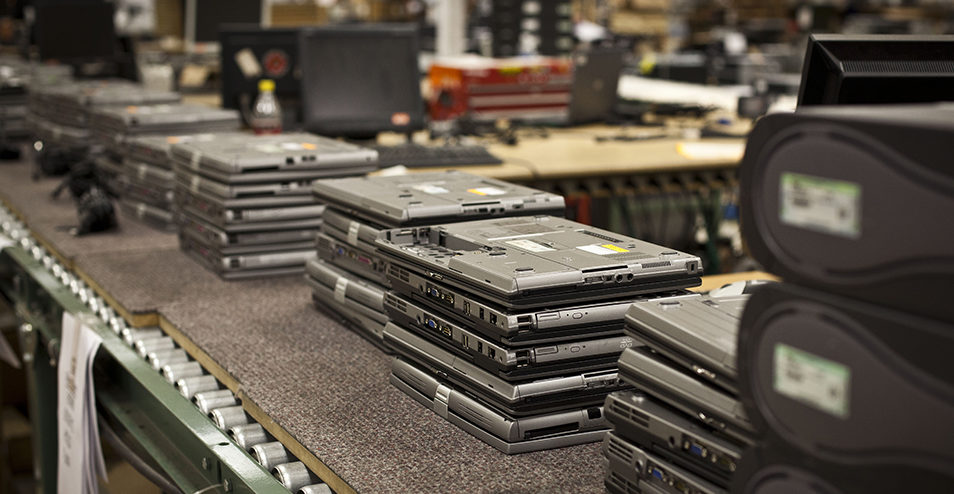Disposing of an old laptop responsibly is essential for safeguarding your data and minimizing environmental impact. This guide will provide comprehensive information on how to dispose of a laptop securely and sustainably.
Why Proper Laptop Disposal is Important
Improper disposal of laptops can lead to serious environmental hazards. Laptops contain toxic substances like lead, mercury, and cadmium that can leach into soil and water if not disposed of correctly. Additionally, failing to securely erase your data can put personal and sensitive information at risk.
How to Prepare Your Laptop for Disposal
1. Back Up Your Data
Before disposing of your laptop, back up any important files. Options include:
- External Storage: Transfer files to an external hard drive or USB flash drive.
- Cloud Storage Services: Use platforms like Google Drive, Dropbox, or OneDrive for secure cloud backups.
2. Wipe Your Hard Drive
Merely deleting files or formatting the hard drive doesn’t fully erase data. Use specialized software like:
- DBAN (Darik’s Boot and Nuke): A free tool for complete data wiping.
- Mac Users: Use the built-in Disk Utility for secure erasure.
- Windows Factory Reset: Go to Settings > Update & Security > Recovery > Reset this PC and select “Remove Everything.”
3. Remove External Devices and Accessories
Detach peripherals like USB drives, chargers, or other connected devices. These items should be reused, recycled, or stored safely.
4. Physically Destroy the Hard Drive (Optional)
For maximum security, physically destroy the hard drive by:
- Drilling Holes: Use a drill to render the drive inoperable.
- Hammering: Smash the drive to ensure data is irretrievable.
Options for Disposing of Your Laptop
1. Recycling Services
Certified e-waste recycling services ensure laptops are recycled responsibly, avoiding environmental damage. Key options include:
- Retailer Recycling Programs: Best Buy, Staples, and Office Depot accept old laptops for free recycling.
- Manufacturer Recycling: Brands like Dell, HP, and Lenovo offer mail-in recycling programs.
Table: Top Recycling Services
| Provider | Details | Website |
| Best Buy | Free in-store recycling | Best Buy Recycling |
| Dell Reconnect | Free recycling through Goodwill | Dell Reconnect |
| Apple Recycling | Trade-in credit for old devices | Apple Recycling |
2. Manufacturer Take-Back Programs
Many manufacturers offer take-back programs. For instance:
- Apple Trade-In: Receive credit for old laptops toward new purchases.
- HP Planet Partners: Offers recycling services for laptops and peripherals.
3. Donate Functional Laptops
Functional laptops can benefit communities in need. Donate to:
- Nonprofits: Organizations like Computers with Causes refurbish laptops for underserved populations.
- Schools and Libraries: Check with local institutions for donation opportunities.
4. Trade-In Programs
Retailers and manufacturers offer trade-in programs where you can exchange your laptop for store credit or discounts on new purchases.
Chart: Trade-In Value of Laptops by Brand
| Brand | Condition | Trade-In Value |
|---|---|---|
| Apple | Good | Up to $600 |
| HP | Good | Up to $400 |
| Dell | Good | Up to $350 |
Understanding the Recycling Process
Recycling a laptop typically involves these steps:
- Data Destruction: Certified recyclers securely erase all data.
- Component Separation: Metals, plastics, and glass are separated for reuse.
- Material Recovery: Precious metals like gold and silver are recovered from electronic components.
Environmental Benefits of Recycling Laptops
Recycling laptops conserves natural resources and reduces environmental harm:
- Energy Conservation: Recycling one million laptops saves enough energy to power 3,500 homes for a year (EPA).
- Pollution Reduction: Proper recycling prevents hazardous materials from contaminating the environment.
- Material Reuse: Valuable materials like aluminum, steel, and copper are reused, reducing the need for mining.
Local Regulations and Resources
Different regions have specific laws regarding electronic waste. To comply:
- Check Local Guidelines: Contact your city’s waste management authority.
- Use Online Directories: Websites like Earth911 help locate nearby recycling centers.
- Participate in E-Waste Events: Many communities host events to collect and recycle electronics safely.
Best Practices for Safe Laptop Disposal
Dos
- Use certified e-waste recyclers.
- Wipe your hard drive completely.
- Donate only to verified organizations.
Don’ts
- Don’t throw laptops in regular trash bins.
- Avoid using non-certified recyclers to ensure proper disposal.
- Don’t leave personal data on the device.
FAQ: Common Questions About Laptop Disposal
1. Can I throw my laptop in the trash?
No, laptops contain hazardous materials that require special disposal to prevent environmental harm.
2. How do I find a recycling center near me?
Use resources like Earth911 or check with local waste management authorities.
3. What if my laptop is still working?
Consider donating or trading in your laptop if it’s still functional.
Conclusion
Properly disposing of a laptop involves securing your data, responsibly recycling the device, and adhering to local regulations. Whether you choose to recycle, donate, or trade in your old laptop, taking these steps ensures a safer environment and responsible use of resources.
By following this guide, you’ll protect your data, support sustainable practices, and contribute to a greener future.

